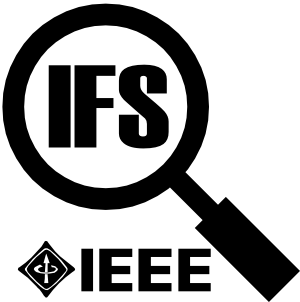Interference has long been the central focus for meeting the ever increasing requirements on quality of service (QoS) in modern and future wireless communication systems. Traditional approaches aim to minimise, cancel or avoid interference. Contrary to this traditional view, which treats interference as a detrimental phenomenon, recent interest has emerged on innovative approaches that consider interference as a useful resource for developing energy efficient and secure 5G communication systems. These include exploiting constructive interference as a source of useful signal power at the modulation level by use of practical multiuser downlink precoding, and also the use of radio frequency radiation for energy harvesting that handles interference and unintended signals as a source of green energy. These techniques open new exciting opportunities in wireless communications by enabling energy self-sustainable and environmentally friendly networks with extended lifetimes, untethered mobility and independence from the power grid, and joint distribution of information and energy within networks. Interference is also being used for physical (PHY) layer secrecy, as an efficient means to jam potential eavesdroppers. This is particularly useful in networks without infrastructure to secure wireless links without the computational overhead imposed by standard cryptographic techniques. These research streams introduce a new vision about interference in wireless networks and motivate a plethora of potential new applications and services. The purpose of this special issue is to re-examine the notion of interference in communications networks and introduce a new paradigm that considers interference as a useful resource in the context of 5G communications.
This special issue seeks to bring together contributions from researchers and practitioners in the area of signal processing for wireless communications with an emphasis on new methods for exploiting interference including symbol level precoding, physical layer security, radiated energy harvesting and wireless power transfer. We solicit high-quality original research papers on topics including, but not limited to:
- Fundamental limits of communication by interference exploitation,
- Modulation level precoding for interference exploitation, interference exploitation in 5G techniques,
- Interference exploitation in the presence of channel state information errors, limited feedback and hardware imperfections,
- Energy harvesting, cooperation and relaying in wireless networks, and in conjunction with 5G methods,
- Time switching, power splitting and antenna switching for simultaneous energy and information transfer,
- Interference exploitation and management in coexisting wireless communications and power transfer systems,
- Joint optimisation of the baseband processing and RF circuit design for energy harvesting,
- Joint interference exploitation and wireless power transfer techniques at the transmitter,
- Security concerns in energy harvesting networks,
- Signal processing for information-theoretic privacy,
- PHY layer secrecy and jamming, PHY secrecy in 5G technologies,
- Introducing artificial and controlled interference for enhancing wireless security,
- Beamforming for PHY-layer secrecy and energy harvesting,
- Interference exploitation and management in coexisting wireless communications and power transfer systems
In addition to technical research results, very high quality submissions of a tutorial or overview nature will also be considered; creative papers outside of the areas listed here but related to the overall scope of the special issue are welcome as well. Prospective authors can contact the Guest Editors to ascertain interest on topics that are not listed.
Prospective authors should visit http://www.signalprocessingsociety.org/publications/periodicals/jstsp/ for information on paper submission. Manuscripts should be submitted using the Manuscript Central system at http://mc.manuscriptcentral.com/jstsp-ieee. Manuscripts will be peer reviewed according to the standard IEEE process.
Important Dates:
- Manuscript Submission: January 30, 2016
- First review completed: March 31, 2016
- Revised manuscript due: May 15, 2016
- Second review completed: July 1, 2016
- Final manuscript due: August 15, 2016
- Publication date: December 2016
Guest Editors:
- Dr. Ioannis Krikidis, University of Cyprus, Cyprus, email: krikidis.ioannis@ucy.ac.cy
- Dr. Christos Masouros, University College London, UK, email: c.masouros@ucl.ac.uk
- Dr. Gan Zheng, University of Essex, UK, email: ganzheng@essex.ac.uk
- Prof. Rui Zhang, National University of Singapore, Singapore, email: elezhang@nus.edu.sg
- Prof. Robert Schober, Universität Erlangen-Nürnberg, Germany, email: robert.schober@fau.de

